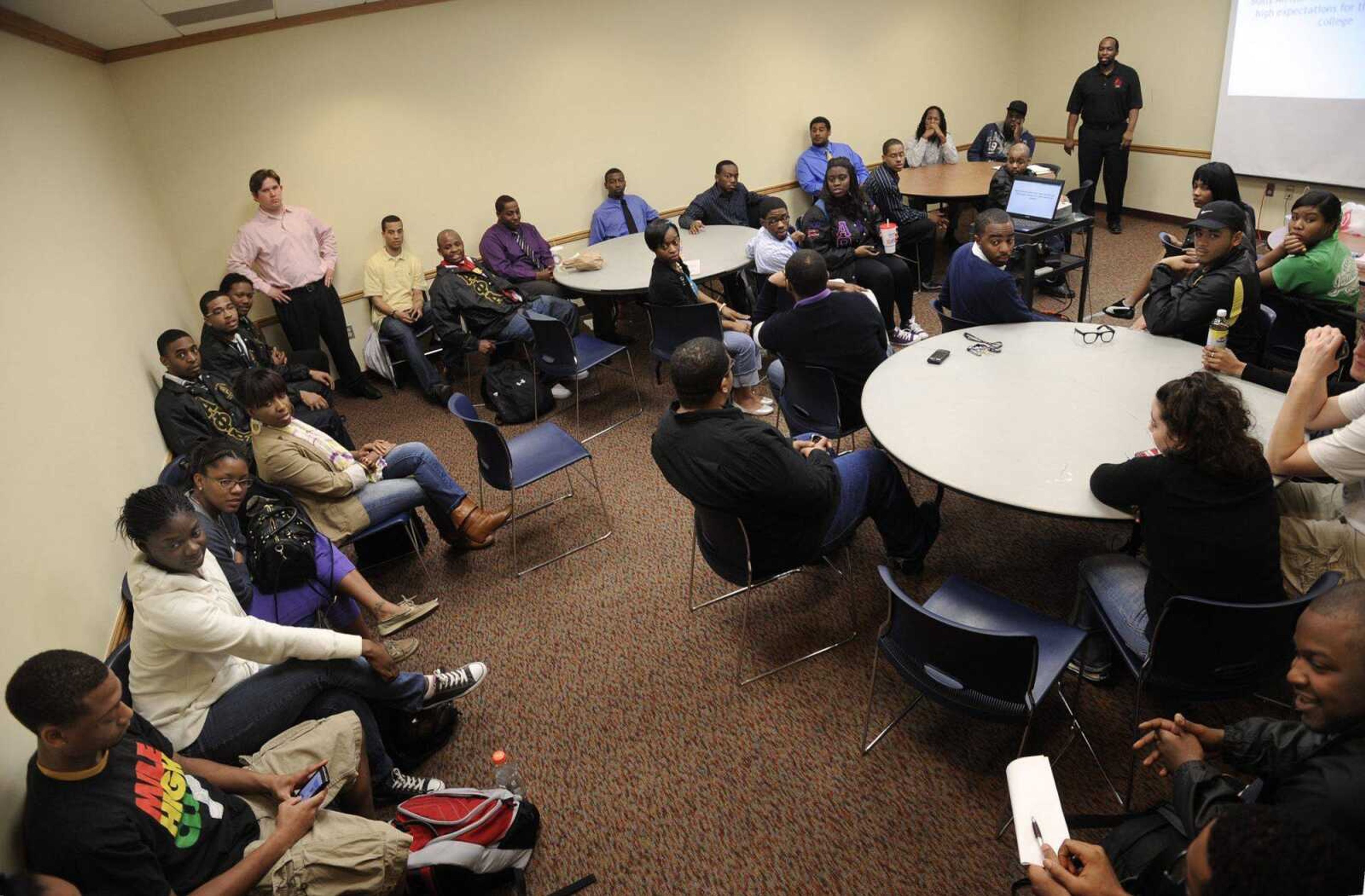Keeping legacies alive: Local leaders say Black History Month an opportunity to honor influential blacks, bring people of all races together
Even though National Black History Month began in 1926 as "Negro History Week," local community leaders say it still has relevance 85 years later. The weeklong recognition was started by Dr. Carter G. Woodson as a way to draw attention to the contributions of blacks to American history and culture...
Even though National Black History Month began in 1926 as "Negro History Week," local community leaders say it still has relevance 85 years later.
The weeklong recognition was started by Dr. Carter G. Woodson as a way to draw attention to the contributions of blacks to American history and culture.
As the son of former slaves, Woodson spent his childhood working in the coal mines of Kentucky. While he didn't enroll in high school until he was 20, he went on to earn a Ph.D. from Harvard. During his studies, Woodson was disturbed to find that history books tended to ignore or diminish the contributions blacks made to society.
He established the history week as a way to remind the country of the role blacks have played in art, science, politics and innovation. Woodson chose the second week of February for the celebration because it coincided with the birthdays of President Abraham Lincoln and Frederick Douglass, two men who greatly influenced African-American lives.
The weeklong celebration became Black History Month in the mid-1970s, and in 1986 Dr. Martin Luther King Jr.'s birthday in late January became a national holiday, often taking emphasis away from February celebrations.
Debra Mitchell-Braxton has been organizing events for both King's birthday and Black History Month for decades, and said while the slain civil rights leader was a great man and worked hard for equality and civil rights, he wasn't the only one who did so.
"King was very inspirational and important, but he wasn't the only civil rights leader," she said. "Black History Month keeps those other legacies alive."
She said when King received the Nobel Peace Prize in 1964, he acknowledged that others paved the way for the modern civil rights movement and accepted the award on their behalf.
"It's important to pay tribute and honor the ancestors who opened doors for minorities -- women, the disabled, people of color," Mitchell-Braxton said. "The world was a better place because they stood up. Don't look at it as a holiday for black people or people of color," she said.
Mitchell-Braxton said part of what is important in continuing the legacy of Black History Month is developing leaders in all racial groups. She is organizing an all-day leadership conference Tuesday for middle school and high school students. She said the event will feature four speakers talking to the students about the power of making decisions and taking a stand without being scared.
This is the second year for the leadership conference, which was a two-day event last year. This year she condensed it to one day to allow families more planning options for vacations and such over a long holiday weekend. Students in the Cape Girardeau School District will be off until Wednesday.
Ensuring the lesson of Black History Month is taught to future generations is also important to Cape Girardeau Central Middle School principal Mark Kiehne. He said throughout February teachers have planned lessons in the classroom to bring to life the struggles of the past. The activities will culminate with Multi Culture Night at 6 p.m. Thursday.
"This is a really cool one," he said. "We'll have different skits, and the drama club will read King's dream speech."
He said while much of the focus will be on African-American history and culture, other ethnic groups within the school will be featured, as well.
"We have some Asian students, and they'll be performing a traditional dance," he said.
Kiehne said he has noticed that as students have grown more colorblind, there has been a tendency to forget the struggles of the civil rights era.
"They don't know how wrong things were done," he said. "A lot has happened and it's important for them to understand that. This brings it back to life, because we don't always think about it."
Mitchell-Braxton is also planning the second annual Gospel Extravaganza in celebration of Black History Month. She said this event is a great opportunity to come together as a community and remember the legacies of past leaders.
"It's a big, uplifting singalong," she said.
Mitchell-Braxton said the event, which will be Feb. 27 at the New Horizon Missionary Baptist Church, will feature praise dancers, contemporary and traditional gospel music and tributes to African-American leaders and achievers.
For more information about the leadership conference or Gospel Extravaganza, call Mitchell-Braxton at 979-0213.
cbartholomew@semissourian.com
243-8600
Pertinent Addresses:
1900 Thilenius St., Cape Girardeau, MO
800 S. Sprigg St., Cape Girardeau, MO
Connect with the Southeast Missourian Newsroom:
For corrections to this story or other insights for the editor, click here. To submit a letter to the editor, click here. To learn about the Southeast Missourian’s AI Policy, click here.









